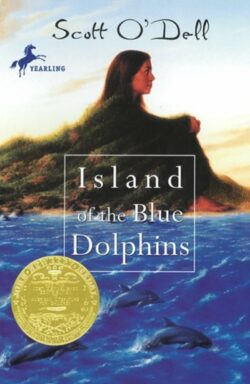This week my daughter (5th grade at Maimonides Albany) was working on a homework project for school on “Island of the Blue Dolphins” by Scott O’Dell. We had to read one chapter at a time together, and fill out a review/worksheet on that chapter.
 When reading Chapter 15 with her, a thought from Tanya (from latter part of Chapter 32 and again in 45) struck me.
When reading Chapter 15 with her, a thought from Tanya (from latter part of Chapter 32 and again in 45) struck me.
It’s a lesson that I didn’t fully appreciate as a yeshiva student learning it in Tanya the first time, but gained a much deeper appreciation for this formula/technique through life experiences. There are memorable interactions with certain people over the years that stand out for me as examples of this playing out IRL – in real life.
Basically – Karana is left behind on the island with her brother, left to fend for themselves against all types of challenges including a pack of wild dogs. The dogs are led by one larger dog, a different type of dog, maybe a wolf, which is a particularly formidable enemy, and killed Karana’s brother. This led to Karana’s seeking to make herself weapons, the way she saw her people make them as a child, to defend herself against this enemy.
The confrontation happens in Chapter 15. After much preparation, she’s ready to execute. She pushes brush in front of their cave and sets it on fire, to smoke the wild dogs out. She has limited arrows, so she ignores the smaller dogs, saving her arrows for the big dog. Soon enough he comes out, he’s right in her line of sight, she aims and shoots, and gets him in the chest. And then he’s weakened, he’s vulnerable. Instead of going in for the kill, she has some change of heart, she ends up rescuing him, he leaves the wild dog pack behind and becomes loyal to her, she names him Runtu, foe turns friend.
The book has 29 chapters, so there’s more to the story. We didn’t spoil all of it for you if you haven’t read it in 5th grade.
But this Chapter 15 of the Island of the Blue Dolphins reflects a formula/technique found in Tanya Chapters 32 (a short phrase in the latter part of the famous chapter on Love Your Fellow) and referenced again in Tanya 45 where Tanya speaks of Jacob and Rachel and the phrase: “Jacob (Compassion/Empathy) who redeems Avraham (Kindness/Love)”.
“Rachmanut (Compassion or Empathy) diminishes hate and awakens love.”
First, a Disclaimer: This approach doesn’t work for all enemies, of course. That’s obvious. It can be dangerous if we’re oblivious to that. Not all enemies and adversaries are created equal and we must protect ourselves.
But often we can be in an adversarial, confrontational situation with someone, and this approach can be helpful. By recognizing their vulnerability and challenge, by seeing their situation and position from a lens of compassion and empathy, it can weaken the sense of anger and upset, and allow for some feelings of closeness and connection to blossom. The compassion component helps dial back the threat and our perception of it. It can help us see this person not as an adversary out to get us, but as someone we feel for as they are dealing with a lot of issues/struggles themselves.
We have a number of “Book of Life” at UAlbany stories that vividly illustrate the potency and wisdom of this Tanya teaching. It can be an emotional interpersonal game-changer. But seeing it in Chapter 15 of a book of fictional children’s literature (it won a Newbery Award) was a neat angle, and also an opportunity to discuss this life wisdom of Chassidus with my daughter.
